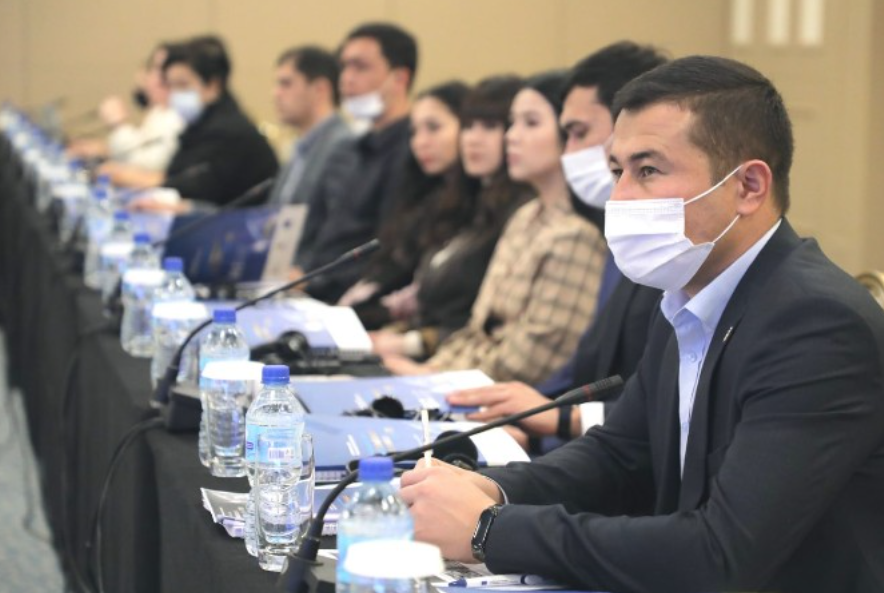Policy space flexibilities under the WTO Agreements explained at Tashkent training workshop
23.11.2021 1877Officials at a training series in Tashkent (10-12 November 2021) that forms part of the facilitation of Uzbekistan’s accession process to the World Trade Organization.
A series of intense trainings on WTO accession and policy space flexibilities under the WTO Agreements was held in Tashkent from 10 to 12 November 2021, organized by the International Trade Centre (ITC) under the auspices of the European Union (EU)’s ‘Facilitating the process of Uzbekistan's accession to the WTO’ project. The Tashkent trainings covered a broad range of accession-related subjects, notably on exemptions and policy space allowance in the multilateral trading system’s rules. The training was extended not only to government officials but included relevant segments of the private sector as key stakeholders in this important development for Uzbekistan’s economy.
In his opening remarks at the training workshop, Mr. Badriddin Abidov, the Deputy Minister of Investments and Foreign Trade (MIFT) and Uzbekistan’s Chief Negotiator in the WTO bid process acknowledged that joining the WTO was an “absolute priority” for Uzbekistan. The country’s President, His Excellency Mr Shavkat Mirziyoyev, in his annual address to Parliament had, in fact, earmarked the process as one of the main tasks of the government this year, Mr. Abidov said. “We see the process as an integral part of deep ongoing reforms aimed at deepening the integration of Uzbekistan in world economic relations and the multilateral system.
“Our main goal is to secure the balance of rights and obligations to ensure the sustainable and consistent goals of the national economy,” Mr. Abidov said, noting that the accession to the WTO not only entailed trade regulation and market opening, but encompassed regulatory mechanisms which afforded flexibilities and exceptions to “support national interests in a competent manner”.
“We build on the belief that the liberalization of access to goods and services should not have a negative impact on sectors of the country’s economy, [notably] those that are at the formation or modernization stage and those that have good development potential,” he emphasized.
The crucial question of flexibility and the exemptions available to governments when they accede to the WTO were indeed at the top of the agenda of the week’s training in Tashkent and were fleshed out in the areas of both tariff cuts and non-tariff measures in goods and services trade.
In goods trade, substantive and administrative flexibilities were spelled out in the areas of customs administration, taxation and domestic measures, agricultural disciplines, subsidies and industrial policy objectives as well as how to ensure a “level playing field” through trade remedies, which include anti-dumping, countervailing measures and safeguards.
A session was also dedicated to provisions built into the WTO Agreement to enable countries to institute import restrictions in the event of an import surge to safeguard the country’s balance of payments.
The “postitive list”-approach in services trade commitments, which affords considerable negotiating latitude, was spelled out to demonstrate the scope of flexibility available to Uzbekistan as it considers the extent to which it wants to open its markets to foreign service providers.
Mr. Francois Begeot, the Head of the Cooperation Section of the Delegation of the European Union to Uzbekistan who also addressed the meeting, noted that Uzbekistan’s accession to the WTO was a very important step for the country that would change its trade relations with the rest of the world. “There are not many countries today that are not part of the WTO and therefore it is so important to be integrated into this process,” he said.
He said the upcoming MC-12 is an important moment for Uzbekistan, not only to show the WTO Member States its commitment and willingness in the process, but also to frame its limitations

